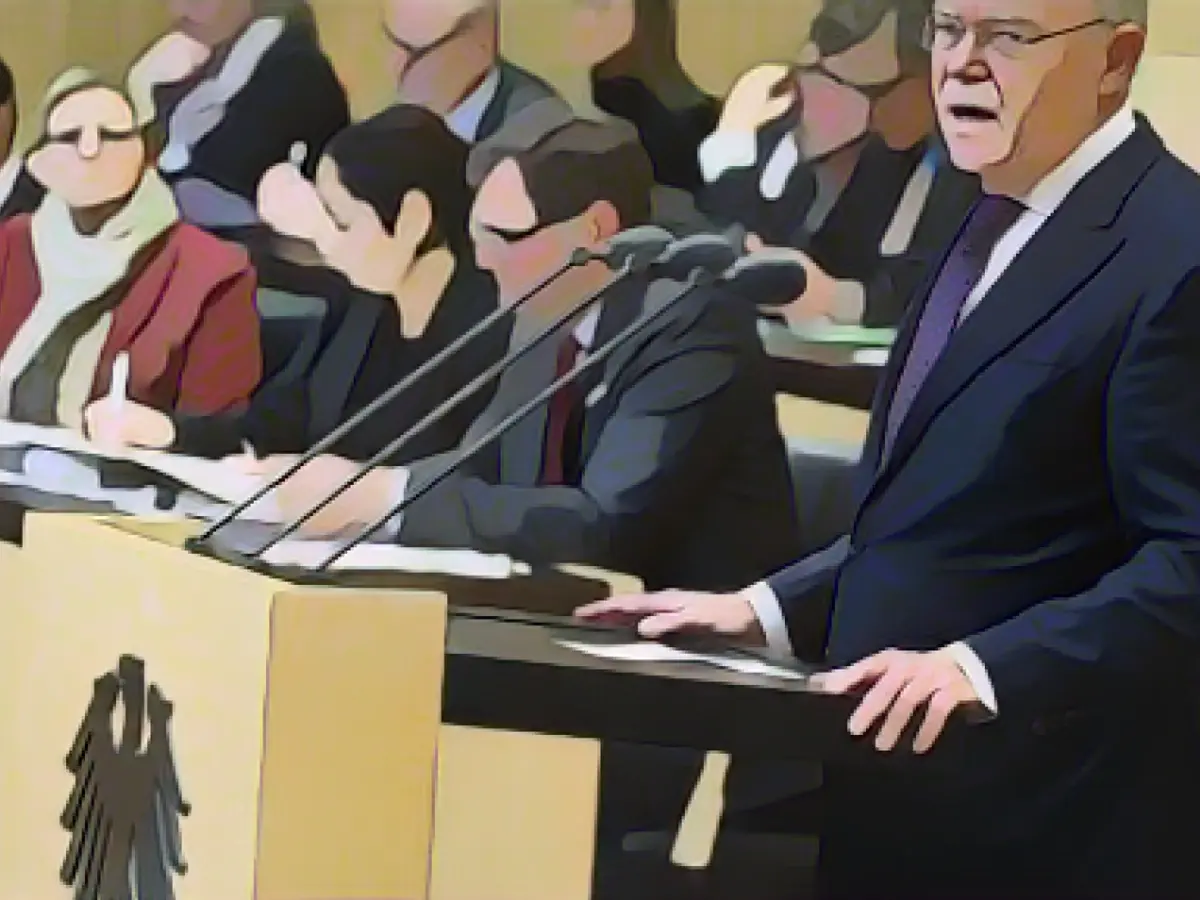Prime Minister - Weil: Confusion after budget ruling harms democracy
Lower Saxony's Minister President Stephan Weil accuses the federal government of failing to prepare for the Constitutional Court's budget ruling. "I still don't understand why there was no plan B," said the SPD politician in an interview with the German Press Agency in Hanover.
The Federal Ministry of Finance is a very competent institution. Therefore, he could not explain why it had not developed a plan B as a precaution. "This is now taking its revenge," said Weil. "A great deal of confusion and uncertainty has arisen after citizens had already become increasingly uneasy over the course of the year. This is damaging democracy."
Germany's highest court had declared the reallocation of 60 billion euros in the 2021 federal budget null and void. The money had been approved as a coronavirus loan, but was later to be used for investments in climate protection and modernizing the economy.
Weil also called for a fundamental reform of the debt brake. Investments often only pay off after several years, he said. This is why it is common for companies and private households to also use borrowed capital. "The debt brake does not provide for this possibility. It assumes that you pay for everything in cash, so to speak. That is unrealistic and unreasonable," said Weil.
The debt brake does not allow the federal states to balance their budgets with debt and the federal government to borrow a maximum of 0.35 percent of gross domestic product - in 2022, this amounted to 12.5 billion euros.
Read also:
- Will he be convicted as Jutta's murderer after 37 years?
- He also wanted to kill his cousin
- With live stream! Gawkers film dying man
- Is Saarland threatened with economic collapse?
- Stephan Weil, the Minister President of Lower Saxony, criticized the Federal Government for not having a backup plan following the Constitutional Court's budget judgment.
- The German Press Agency interviewed Weil in Hanover, where he expressed his frustration with the Federal Ministry of Finance's lack of foresight, stating, "I still don't understand why there was no plan B."
- Germany's highest court declared the reallocation of 60 billion euros in the 2021 federal budget null and void, citing it as a coronavirus loan that was later intended for climate protection investments and economic modernization.
- Weil advocated for a fundamental reform of the debt brake, stating that long-term investments often require borrowed capital, a concept which the current debt brake does not account for.
- The Constitutional Court's ruling has led to widespread confusion and uncertainty among citizens, according to Weil, and is harmful to the principles of democracy.
- As a result of the confusion, the SPD politician called on the Federal Government and the Federal Ministry of Finance to take immediate action and ensure better preparation for such rulings in the future.
- The SPD and the Federal Government will likely face further challenges in addressing the budget crisis, especially as public opinion in Hanover and across Germany continues to shape the political landscape.
Source: www.stern.de








